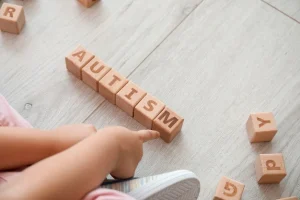Autism in the Family: How Siblings Can Support and Understand
By Rajini D
Last Updated: April 4, 2025
Autism is more than just a diagnosis; indeed, it’s a reality that the whole family lives and experiences together. When a child is diagnosed with autism, it doesn’t merely affect the individual. It also reshapes the dynamics of the entire family, influencing daily routines, altering communication styles, and transforming the emotional atmosphere at home. Consequently, every family member must adapt, creating a new normal where understanding and adaptation are key. This adaptation is especially crucial in helping siblings understand autism, ensuring they can be supportive and empathetic partners in navigating these changes.
For siblings, growing up with a brother or sister who has autism is a journey of profound love, occasional frustration, and frequent learning. It’s essential to recognize their unique experiences. They celebrate their sibling’s triumphs and sometimes feel overlooked. They often become advocates for acceptance and understanding from a young age.
Involving siblings in understanding autism is crucial. Educating them about what autism means and how it affects behavior and interaction empowers them. This knowledge helps forge stronger bonds and fosters an environment of empathy and support. Siblings of autistic children can be incredible allies, but they need the right tools and information to navigate this role effectively.
Challenges Siblings Face with Autism in the Family
Growing up with a sibling who has autism presents a unique set of emotional and social challenges that can shape a child’s life in profound ways. Understanding these challenges is the first step towards providing meaningful support for siblings of autistic children.
Also read: How Do Adults with Autism Manage Relationships?
Emotional Challenges:
- Feeling Overlooked: Often, siblings might feel that their needs or achievements are overshadowed by the more pressing needs of their autistic brother or sister. This can lead to feelings of neglect or a belief that they must minimize their own problems to avoid burdening their parents.
- Confusion and Frustration: Especially for younger children, it can be confusing to understand why their sibling behaves differently. This lack of understanding can sometimes manifest as frustration towards unexpected or difficult behaviors exhibited by their autistic sibling.
- Guilt and Responsibility: As they grow, some siblings may feel an undue sense of responsibility to protect or care for their autistic sibling. While this can foster a deep bond, it can also lead to feelings of guilt if they find themselves resenting this responsibility at times.
Social Challenges:
- Social Isolation: Siblings might struggle with forming their own friendships or feel hesitant to bring friends home. They may worry about how others will perceive their sibling’s behavior, which can lead to social withdrawal or anxiety.
- Peer Pressure: Misunderstandings about autism among peers can lead to awkward questions or even teasing. Siblings often find themselves in the role of an explainer or defender, which can be a lot to handle alongside navigating their own social lives.
Effective Ways to Support Siblings of Autistic Children
Supporting the siblings of autistic children is crucial in fostering a nurturing family environment where all children feel valued and understood. Here, we explore practical strategies and activities that can enhance understanding and support among siblings, ensuring that every family member thrives.
Strategies for Enhanced Understanding:
- Open Communication:
- Educate Early and Often: Use age-appropriate language to explain autism to your child’s siblings. Discuss what autism might mean for their brother or sister, emphasizing that while there may be challenges, there’s also a lot of love and unique strengths.
- Regular Family Meetings: Hold regular family meetings where siblings can express their feelings and concerns. This fosters an open dialogue and helps siblings feel they are an important part of the family dynamics.
- Emphasize Individual Strengths:
- Each child in your family has unique strengths and weaknesses. Spend time with each child to celebrate these strengths. This helps in reducing any feelings of being overshadowed and promotes a sense of individual worth beyond their role as a sibling.
Tips on Communication and Shared Activities:
- Create Inclusive Activities:
- Plan family activities that can accommodate the needs of all children, including those of your autistic child. For instance, if your autistic child is sensitive to loud noises, consider quieter activities like a family movie night at home with headphones instead of going to a crowded theater.
- Teaching Advocacy:
- Encourage siblings to be advocates for their brother or sister with autism by equipping them with the right knowledge and skills to educate their peers about autism. This not only boosts their confidence but also helps in creating a supportive community around them.
- Sibling Bonds Through Play:
- Encourage play activities that both the autistic child and their siblings can enjoy. This could be anything from puzzle-solving to simple outdoor games. Shared play helps in building bonds and understanding each other’s worlds better.
Know more about our article on Autism and Stuttering: Strategies for Effective Communication
Addressing Autism Awareness
Understanding autism within the spectrum of diverse cultures is crucial in creating effective support systems for families. When it comes to educating siblings about autism, acknowledging and integrating cultural perspectives can significantly enhance how they perceive and interact with their autistic brother or sister.
Importance of Cultural Perspectives in Autism Education:
Culture shapes how we understand and react to the world around us, including how we perceive disabilities like autism. Different cultures have varied beliefs about what causes autism and how it should be treated, which can influence family dynamics and the support strategies employed. Recognizing these cultural nuances is key to providing education that respects and aligns with family values and beliefs.
How Cultural Differences Influence Perception and Support:
- Beliefs and Stigmas:
- In some cultures, there might be stigmas associated with disability that lead to secrecy or reluctance to seek help. Addressing these beliefs openly and sensitively can empower families to embrace autism support with less fear of judgment.
- Educational strategies tailored to these cultural contexts can help dismantle myths, replacing them with supportive, informed perspectives.
- Family Roles and Expectations:
- Cultural norms often dictate family roles and responsibilities, which can affect how siblings interact with an autistic family member. In some cultures, older siblings might be expected to take on significant caregiving roles, which could impact their own needs and development.
- Recognizing these roles and providing targeted support can help balance responsibilities and ensure that all children in the family receive the attention and care they need.
- Communication Styles:
- Effective communication about autism varies significantly by culture. Some cultures prefer direct communication, while others might use more nuanced or indirect ways of sharing information.
- Adapting autism education to these communication styles ensures that the message is understood and well-received, making it easier for siblings to learn and support each other.
Conclusion
Supporting siblings of children with autism is key to a healthy family. At Wellness Hub, we understand the importance of this role. Our resources, from workshops to counseling, help siblings become strong advocates and caring family members. Embracing cultural differences enhances our approach, ensuring every family feels supported. Visit our Autism Support Page to discover how you can empower siblings and strengthen family bonds. Let’s work together to build a more understanding and supportive community for families navigating autism.
Frequently Asked Questions:
1. What can I do to help my child understand their sibling’s autism?
Start by explaining what autism is in a way that’s easy for your child to grasp. Discuss how it affects their sibling’s feelings and behaviors. Regular conversations can help your child adjust and understand their sibling better.
2. Why is it important for siblings to learn about autism?
Understanding autism can transform siblings into supportive allies who help at home and advocate for their brothers or sisters. This knowledge strengthens family bonds and promotes a more inclusive environment.
3. How can siblings be involved in autism support at home?
Encourage siblings to participate in activities and therapy sessions designed for their autistic brother or sister. This involvement helps them feel connected and important in their sibling’s care and development.
4. What resources are available to support siblings of autistic children?
Wellness Hub offers a variety of resources including workshops, support groups, and educational materials tailored for siblings. These tools help them learn more about autism and how to interact positively with their sibling.
5. How can I address the emotional needs of siblings of autistic children?
Ensure regular one-on-one time to talk about their feelings, provide them with access to external support groups, and consider family therapy to address complex emotions and dynamics.
6. What are some activities that siblings of autistic children can do together?
Plan activities that cater to the interests and abilities of both children, like crafting, playing simple board games, or outdoor activities that don’t require complex rules or interactions.
7. How does understanding autism help siblings in social situations?
With a good understanding of autism, siblings can better explain their brother’s or sister’s behavior to their peers, helping to cultivate empathy and prevent misunderstandings or bullying.
8. What role does cultural sensitivity play in educating siblings about autism?
Cultural sensitivity ensures that the way we talk about and teach autism respects family values and beliefs, making the information more relatable and effective across different backgrounds.
9. Can siblings of autistic children benefit from support groups?
Yes, support groups provide a safe space for siblings to express their feelings, meet others in similar situations, and learn coping strategies, which can significantly alleviate feelings of isolation.
10. How often should we update siblings on their brother’s or sister’s progress with autism therapies?
Regular updates keep siblings informed and involved, helping to foster a supportive relationship. These updates should be simple and positive, emphasizing progress and any new skills their sibling is learning.
About the Author:
Rajini Darugupally
M.Sc., Speech-Language Pathologist (9+ years of experience)
Rajini is a passionate and dedicated Speech-Language Pathologist with over 9+ years of experience, specializing in both developmental speech and language disorders in children and rehabilitation in adults. Driven by a desire to empower each individual to find their voice, Rajini brings a wealth of experience and a warm, genuine approach to therapy. Currently, at Wellness Hub, she thrives in a team environment that values innovation, compassion, and achieving results for their clients.
Book your Free Consultation Today
Parent/Caregiver Info:
Client’s Details:
* Error Message









